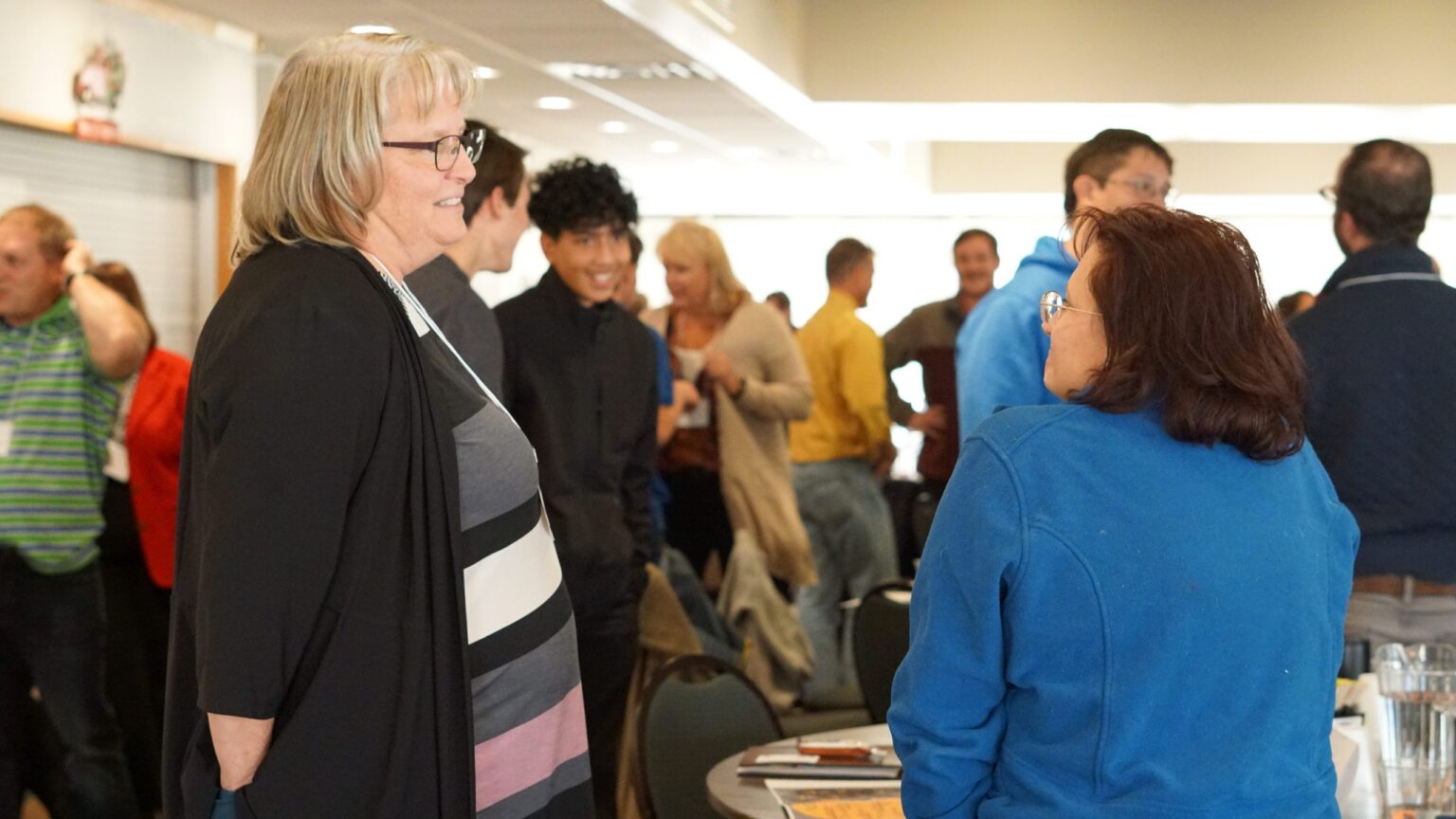Community-Driven, Work-Based Learning Programs Create New Opportunities for Students in Cañon City
With the right local leaders in education, business, and the community, schools across Colorado can create innovative programs that better prepare students for an uncertain future and equip them with the skills to secure the in-demand jobs of tomorrow.
High-quality examples of community-driven innovation in Colorado led to the development of the Homegrown Talent Initiative (HTI) – a statewide partnership between Colorado Succeeds and the Colorado Education Initiative (CEI) and supported by the Daniels Fund, Walton Family Foundation, and Gill Foundation. HTI is designed to bring together K-12 (students, educators, leaders), business and economic development partners, higher education, and families and community stakeholders and support them throughout the process of transforming their students’ educational experience.
In August of 2019, eight rural communities were selected to explore and design new work-based learning opportunities aligned to the Career-Connected Learning Continuum. Through HTI, the communities will collaborate to design and implement ways to tap into the potential of local talent early on while students are still in middle and high school.
“With the Homegrown Talent Initiative, I think that this is going to impact our schools and our students dramatically,” said Trisha Herman, economic development director at Phillips County. “The collaboration between economic development, our business community, and the school districts all go hand-in-hand and ties together. We want to be able to create opportunity for our students to be able to not just have that four-year degree, but also how we can educate our students on a work pathway for getting into a career that they are interested in. We want it to be innovative.”
Seeing local collaboration in action – A tour of Cañon City High School and TechSTART
In late November 2019, participating communities gathered in Cañon City for two days to dig into HTI’s design phase and learn from rural exemplars in Cañon City. To kick off the site visit, Cañon City High School principal Bill Summers shared insights about how they developed their career-connected pathways program and encouraged fellow leaders to spearhead changes in their own schools.
According to Bill, “This change has invigorated a lot of teachers who have been stuck in traditional education.” He even invited teachers to develop new classes that served the needs and interests of their students. An astounding 50 new classes – and counting – resulted. CCHS’s staff does this autonomously because they believe in the direction their school and its leadership are headed.
Soliciting student feedback and changing the definition of success were also key to the CCHS transformation. The high school had to shift their focus and move from said Cañon City RE-1 superintendent, George Welsh. While students still receive what may be perceived as traditional high school lessons, CCHS has elevated experiential learning to include internships with local businesses. Students now have the opportunity to see real-world relevance in their lessons every day.
At TechSTART’s Main Street offices, the HTI participants saw how the high school’s internship program works with the city’s business community. Here, approximately 8-10 small businesses from a variety of industries share collaborative office space. Students can gain real-world experience in river science, software development, architecture, and more. “I tell students, don’t fall in love with the technology, fall in love with the process and entrepreneurship,” said Brad Rowland, chief marketing officer of FSLogix and TechSTART spokesman.
Cañon City’s career-connected program proves that Colorado towns don’t need a single large corporation or industry to support their economies. With some creativity and support, rural areas can bring quality job opportunities to eager and talented kids right in their hometown.
Learning how to prepare today’s students for tomorrow’s workforce
After the site visits, participants spent the next 1.5 days diving into a series of innovation and continuous improvement exercises. Expanding on an empathy building exercise from the first convening in September, the communities engaged in conversations about big ideas, community priorities, and challenges students face, to name a few.
HTI participants were encouraged to fuel their ideas by utilizing the Silicon Valley concept of “yes and,” which makes room for even the most outrageous ideas. Facilitated by CEI, the groups thought through potential pathways programs, such as internships, and how they could reinvigorate their local economy. “Good ideas don’t live in predictable places,” said Alex Carter, vice president of implementation for CEI.
The goal of all this brainstorming and problem solving is to help each of the eight participating communities create a high-quality profile of a local high school graduate. These profiles will serve as road maps to sustainable work-based programs that prepare kids for the modern workforce and enable them to find opportunities in their local communities.
Getting leadership on board
The communities covered a lot during the two days in Cañon City, but there was one big theme that dominated the conversation: The importance of engaged leadership.
Bill Summers stressed, “If you’re going to do something that has inherent risk, the people at the top need to have your back.”
That’s because reimagining a more flexible, opportunity-rich high school isn’t easy. To successfully prepare every student for life after high school, schools need to be creative about how they build a workforce around the community’s unique culture, values, and assets. This isn’t possible without a supportive school board and superintendent.
Fortunately, each of HTI’s eight communities have leaders who are ready to innovate, collaborate, and make big changes. They’ll be busy working on graduate profiles between now and March 2020, when they convene again at another exemplar site, St. Vrain Valley Schools. “What we’re doing is meant to be transformative,” said Dave Eddy, Colorado site director for Boeing, and HTI team lead and business partner for Elizabeth School District.
The bus is leaving. You have to decide whether you want to be on it or not.
George Welsh, Superintendent, Cañon City Schools

